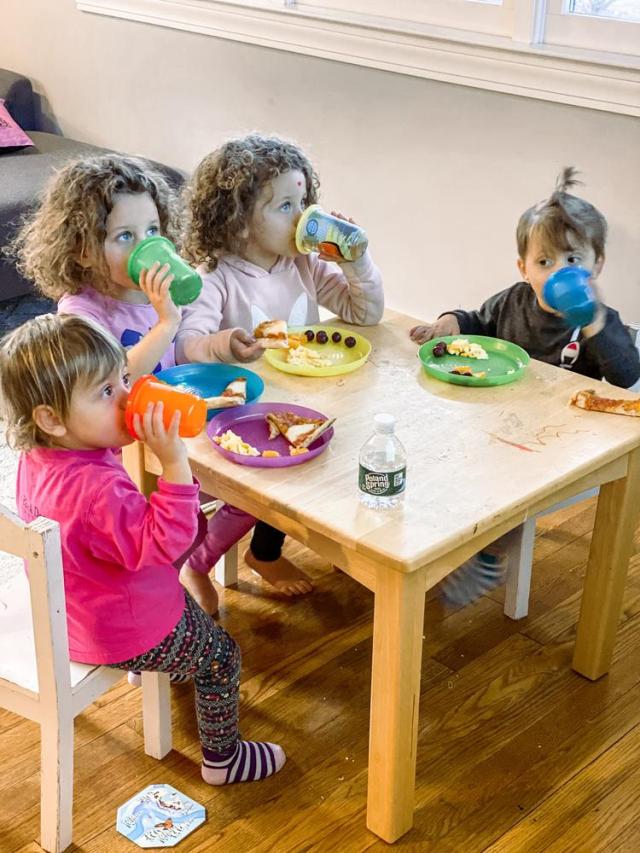While it’s easy to think that you have to be born good learner to be one, that is not entirely true. Although the child’s individual predispositions to education and personality play a vital role in developing their approach to learning, with good learning habits and proper motivation, any student can become a good learner. However, the mistake many parents often make is they rely solely on the teacher as the only source of instruction instead of extending their academic growth outside the classroom. Parents are the first teachers to their children, and as such, they have the task to make the most of the time they spend with their kids and use it to support their children’s learning at home. To get you started, here’s a list of five creative ways for increasing your child’s motivation and boosting their academic achievement. Let’s take a look at these clever and useful tips.
1. Help Them Discover Their Learning Style
When it comes to knowledge acquisition, every child has their preferences, and discovering which learning style best suits them is the first step towards boosting their academic performance. While some students learn using one style which is dominant, others prefer a blend of different learning styles. Since the one-size-fits-all approach doesn’t work when it comes to education, and there are no rules on how to combine different learning styles, it’d be best if your child would try different learning styles and opt for one(s) that best suit their needs. Some individuals best learn by relying on visual aids such as pictures and images while others prefer the hands-on approach to learning. And while some students acquire knowledge faster when they’re working in groups or with other individuals, others learn better when they study alone. Help your child discover which of the seven learning styles best fit them so they start using the proper learning techniques to ensure fast, quality study time.
2. Emphasize the Value of Education
Teaching your child how important education is for them and their future is another step you can take to ensure they have the proper motivation. Even though the knowledge and information they get at school is a great starting point, you need to understand that education begins at home, and the attitude you have towards education will rub off on your kids and influence their way of perceiving education. When you have a positive approach to education and constantly emphasize how important it is, you can expect your children to adopt the same attitude, which will determine their educational success later on. And even if there are some obstacles that can impede progress such as finances, nowadays there are a number of girls scholarships that are being given to families who lack resources to ensure everyone has an equal chance at education and success.
3. Help Them Stay Organized to Boost Their Motivation
Designing a space that is well-organized and reserved only for learning can be a great way to boost your child’s motivation for learning and help them feel like they’re in control. Even though disorganization is common among youngsters, with some practical tips and organizational skills, your child can master the art of organizing their supplies and assignments, and grow up to become a well-organized, responsible individual. Optimize their study space by incorporating all the necessary elements and equipment and removing any distractions, and arrange a time in a day that they’ll study to ensure they always study at the same place and at the same time.
4. Encourage Your Child to Pursue Interests and Subjects They Enjoy
Showing enthusiasm for the subjects your child has expressed interest in is a great way to provide additional motivation and boost their academic performance. If you notice that there is something your child is particularly fascinated by, encourage them to further pursue their interest and gain more knowledge about that certain topic. When a child is eager to learn more about one subject in particular, the whole learning process becomes so much easier since the child doesn’t need any external motivators to engage in learning. If they are interested in one animal in particular, say giraffes, find a way to occupy their mind and encourage them to find out more about them. Find a book about giraffes and read to them, and after that, ask them to explain what they’ve just learned.
5. Celebrate Their Successes and Achievements
Recognizing the achievements and successes of your child and celebrating them is one of the most effective ways to increase their motivation and make them feel good about themselves. Sometimes, even the smallest yet sincere praises go a long way in making a child feel proud of their achievements, and the younger the kid, the more praises they should be given in order to provide positive reinforcement and boost their motivation. If your child managed to finish a project on time and earned a good grade, treat them to their favorite ice cream or let them play video games for another hour. That way, they’ll feel inspired to keep up the good work and challenge themselves to do even better next time.
There are so many things you can do to ensure the academic success of your child. Use the tips above to motivate your child to learn and help them fulfill their potential.
Isabel William is consultant by day and a blogger by night and Mom to twins 24/7.
Area of interest includes education, well being, mental health, as well as self-improvement.
Considered by her peers a lifetime educator, whose passion is love for writing and helping people, parenting, education and science.

















